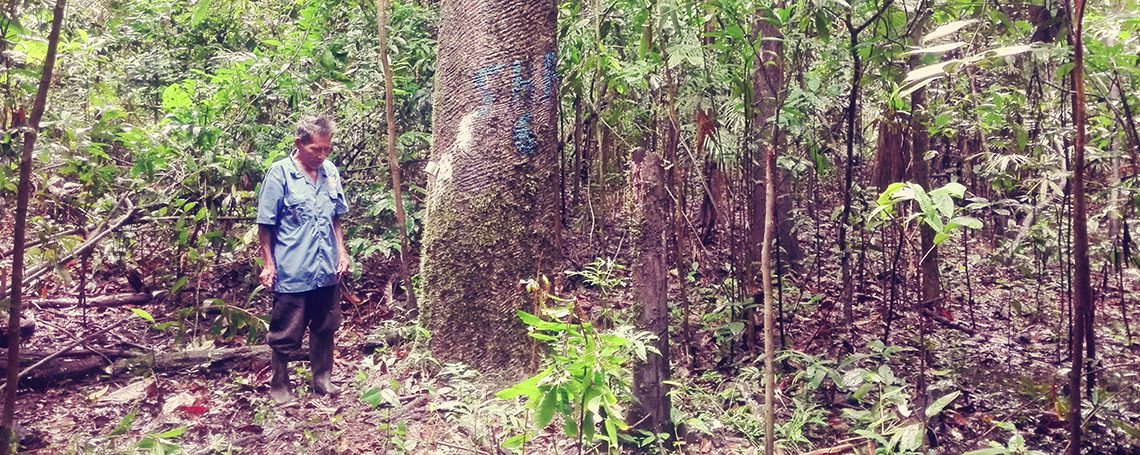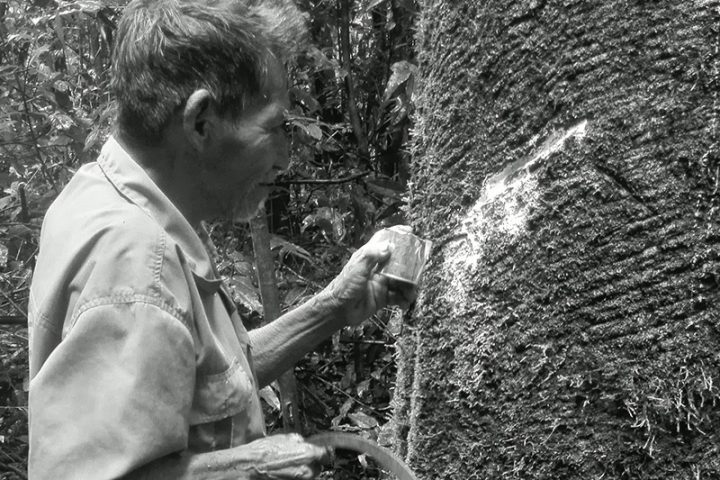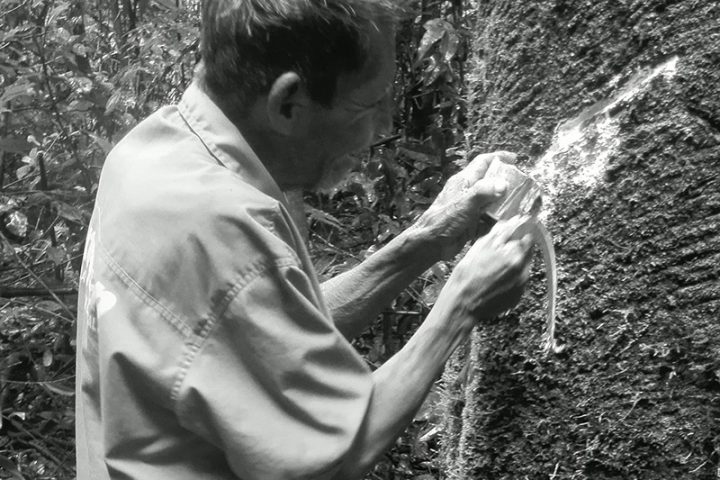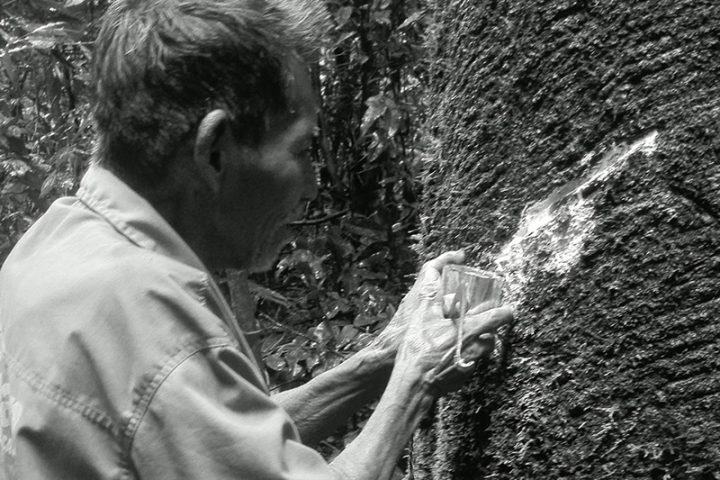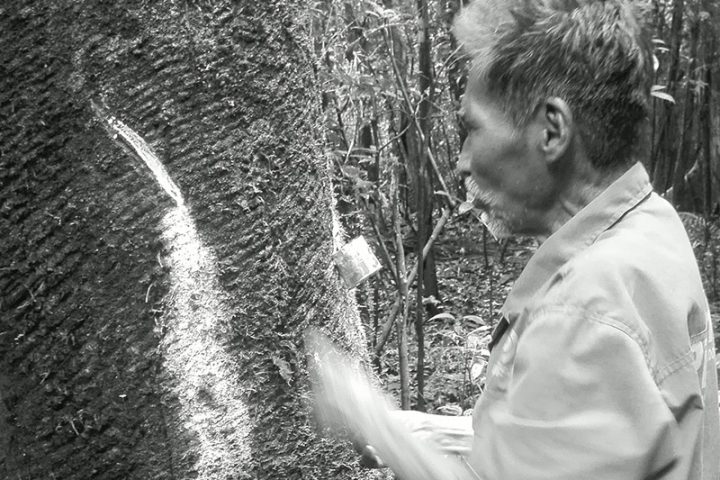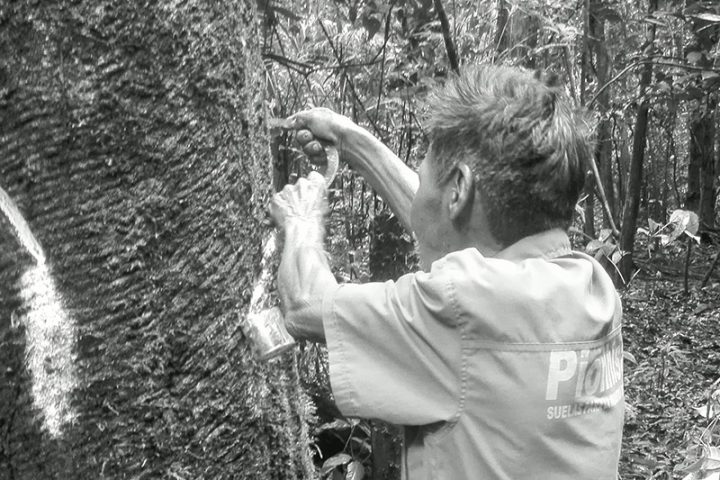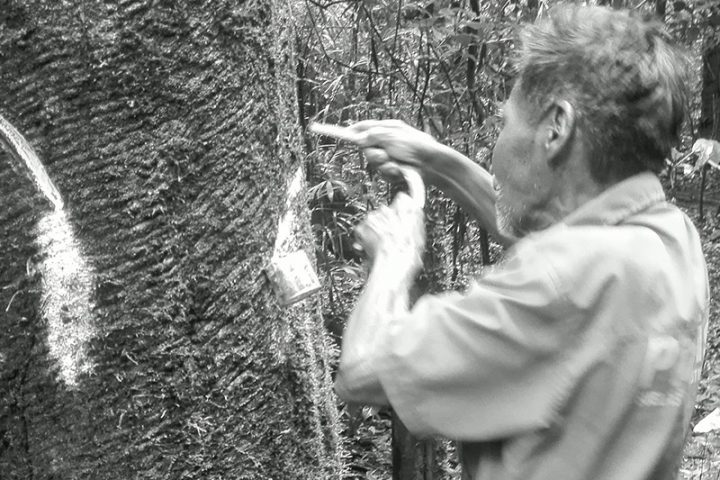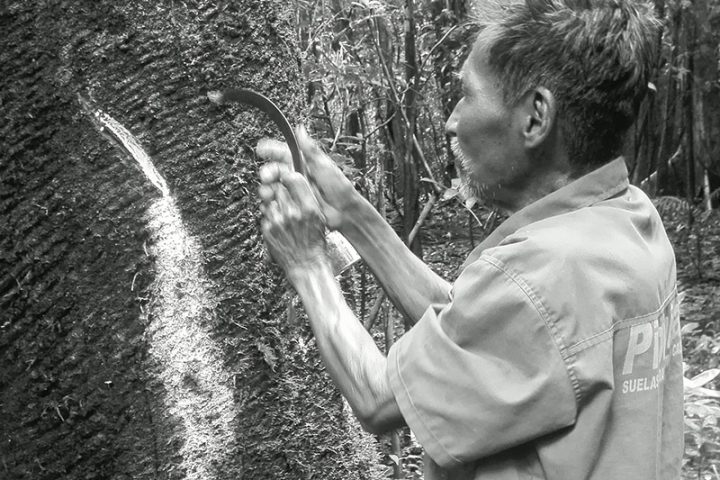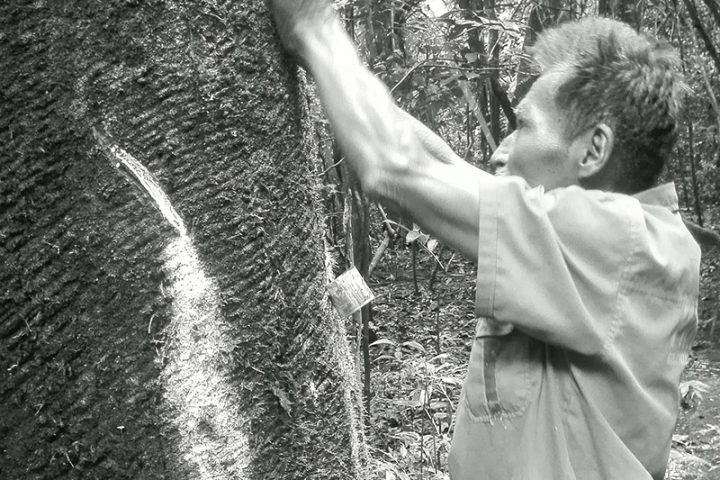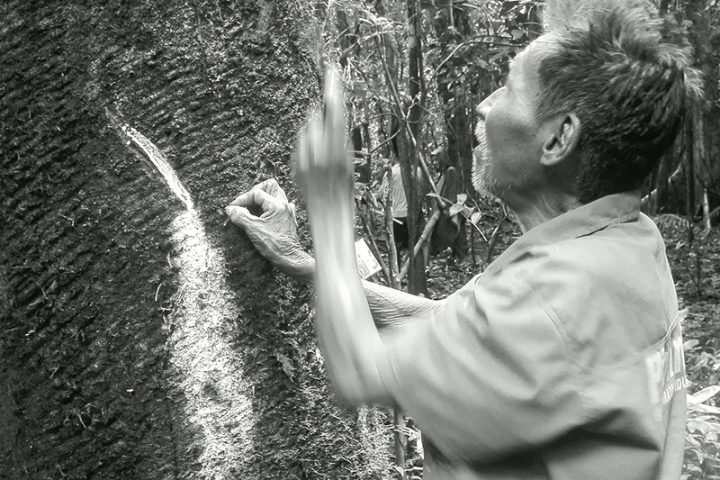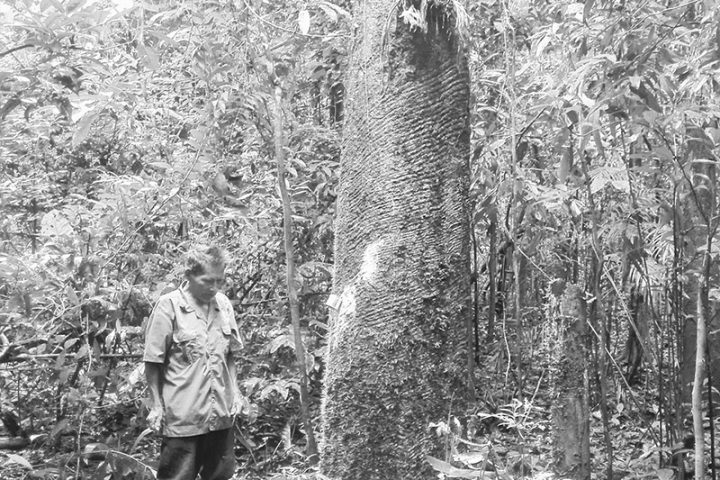Don Francisco Fababa Tangoa, 85 years old, is one of the Amazonian men who still live in the time, being a descendant of father San Martinense (from San Martin) and mother Balsapuertina, he was born on December 22, 1933, in the community of Bolivar on the Ucayali river , Now he lives in the Community of Puerto Miguel-Quebrada Yarapa.
From a very young age he used to go with his father to the jungle to learn the skills in the extraction of rubber latex or shiringa, main and important work in those years. Don Panchito (as he is affectionately known for the local people) used to get up very early in the morning every day, took his faca (small dagger), tishela (brass container), brass bucket and machete, his work began at 5 am and stretched At 3 o’clock, when he was just returning home for lunch. He was so dedicated to his work that he made the most of his time.
Once in his work center (the jungle) he located the rubber tree or shiringa, looked closely and with joyful eyes made the first cut at the approximate height of his forehead and almost instantly the tree emanated his latex and he placed The tishela to pick it up, then he followed its route to the next tree that was not very far away and he used to do the same operation all the time.
During his working day he could scratch and bleed up to 50 trees, “were good times”, he says us. After scratching and placing the tishelas in the last tree of the day, he returned to the first tree and emptied the latex into the bigger brass bucket, he used to do the same operation in each of the trees worked before. In a day of work he could collect up to 30 liters of latex, which went into a smoking process to form solidified latex balls, a product that was delivered to a merchant going to the town to buy, not only don Panchito, but also other rubber workers. Don panchito didn´t work only on rubber latex, but also work the “balata” and “leche caspi”. With the money that he used to get for kg of latex ball, he used to buy basic foods, like rice, sugar, salt, kerosene, clothes among others. But the meat, he got it from the jungle; it was good and abundant times he says.
When Don Panchito was 16 years old he joined to the Peruvian Army Camp “Curaray” -Rio Napo, after two years he returned to form his own family and wanted to keep working the rubber, but the prices were very low and the merchant was almost not going to buy the latex balls any more, so he decided to do other activities such as yute, barbasco, tagua or yarina, aguaje, chonta, Piabas (babies fish) and animal hunting (mitayo). As part of his thousand trades he suffered many serious accidents, such as: when he struck down a tree he squeezed his feet, but he was almost unharmed, he was also bitten by a poisonous snake and in one of the animal hunts he was shot in the abdomen. As a good amazonian man he survived all these accidents.
Nowadays he is already engaged in fishing and agriculture, but he remembers all those years with nostalgia and concern for what he says: “children will suffer hunger when there are no plants and animals on the mountain”.

